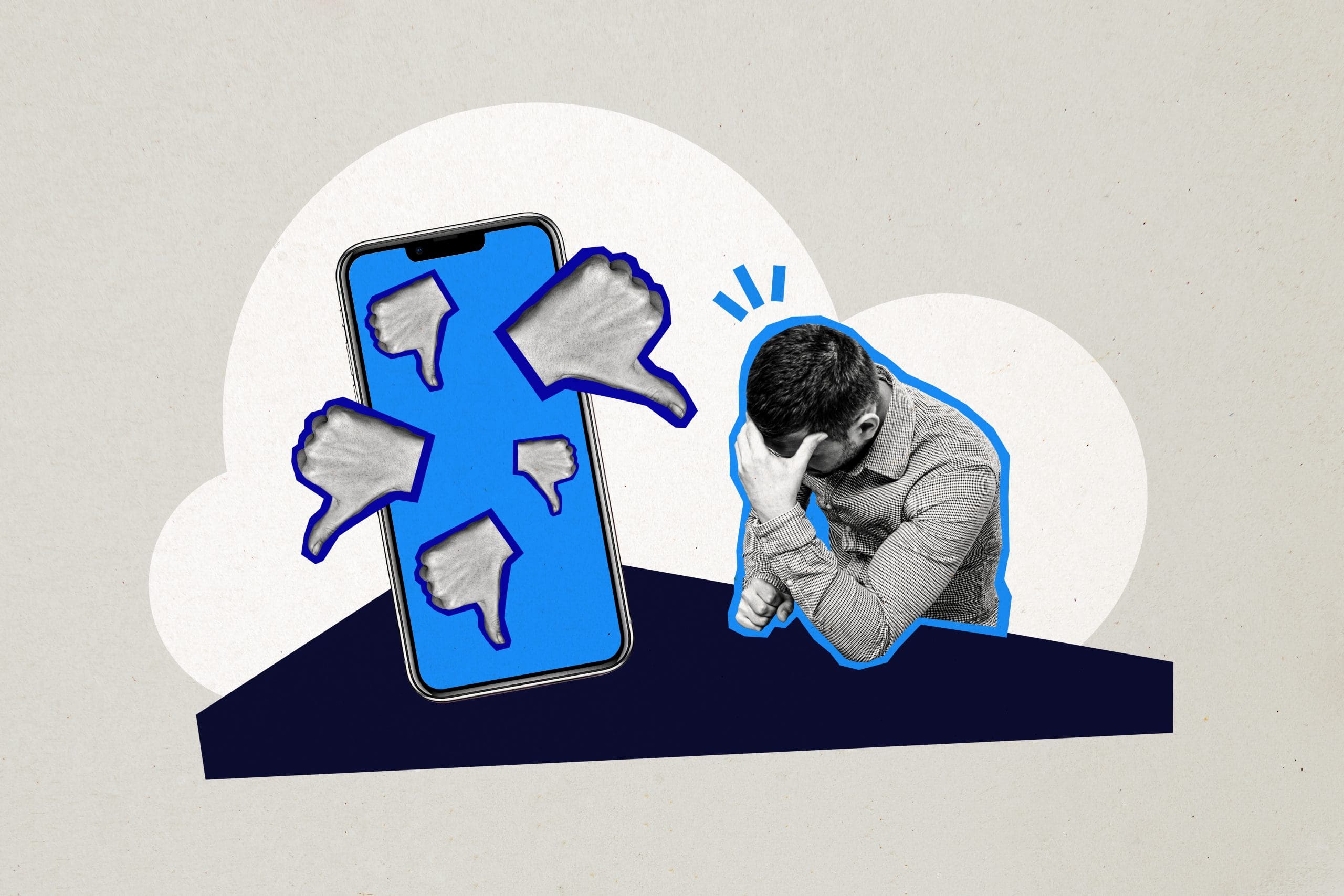Negative Impact of Social Media on Business: How to Mitigate Reputation Risks

Social media is crucial for small business marketing but poses challenges such as damaging reputations and losing brand control. This article explores identifying and mitigating these risks, offering strategies to protect your brand on social media effectively.
What Is Social Media and Its Impact on Business?
Social media, encompassing platforms such as Facebook, Twitter, and Instagram, has revolutionized how small businesses interact with their audience.
It enhances brand awareness, fosters customer trust, and gives the business owner a substantial return on investment through well-planned social media marketing strategies and careful monitoring of online mentions.
What Are The Negative Effects of Social Media on Business?
Damage to Reputation:
Damage to reputation is a significant risk for businesses on social media, where negative publicity and viral backlash can quickly escalate.
Controversial tweets or inappropriate posts can spread outrage and tarnish images. Viral videos showcasing poor customer service or unethical practices can result in a negative perception that’s challenging to repair.
Such incidents can affect customer loyalty, investor confidence, and overall brand value, with long-term repercussions spreading rapidly across various online platforms.
Loss of Control Over Brand Image:
Social media’s unregulated nature allows customers to share their opinions freely, potentially resulting in a loss of control over brand image.
Positive and negative comments can influence public perception, with viral criticism quickly tarnishing a company’s reputation. To manage this, businesses must actively monitor social media channels and address issues promptly.
Engaging with customers transparently and using brand monitoring tools can help mitigate negative publicity and manage the brand image effectively in the digital landscape.
Negative Publicity and Viral Backlash:
Adverse publicity and viral backlash can severely impact a business, causing significant reputation damage that may be difficult to recover from.
Rapidly spreading negative publicity on platforms like Twitter or Facebook can instantly tarnish a company’s image.
For instance, a clothing brand’s insensitive advertisement faced swift and widespread public outrage, leading to a sharp decline in sales and loss of consumer trust.
Decrease in Customer Trust and Loyalty:
A decrease in customer trust and loyalty often follows reputation loss.
Negative experiences and feedback on social media can erode a company’s credibility, causing customers to question the brand’s reliability and quality. Exposure to negativity can plant seeds of doubt, undermining the company’s integrity and values.
Maintaining a positive online presence is crucial for fostering trust and loyalty, as a few negative interactions can quickly tarnish a well-built reputation.
How to Identify and Monitor Reputation Risks on Social Media?
Identifying and monitoring reputation risks on social media is crucial for businesses to mitigate potential damage, utilizing tools like Hootsuite for tracking online mentions and feedback.
Social media listening tools offer benefits such as real-time data analysis, tracking brand mentions, and monitoring competitor activities.
They allow for swift responses to customer feedback and enhance online reputation.
Additionally, monitoring online reviews and comments helps businesses address issues promptly, improving customer satisfaction and attracting new customers.
Keeping track of industry influencers and managing social media activity provides insights into brand perception, guiding marketing strategies to maintain customer trust and resonate better with the target audience.
How to Mitigate Reputation Risks on Social Media?
Have a Crisis Management Plan in Place:
Businesses must have a crisis management plan with clear policies and guidelines to handle social media crises effectively. This plan should include communication protocols, escalation procedures, and defined roles.
Guidelines for social media engagement during crises ensure consistent responses across channels. Legal teams play a crucial role by providing expertise to ensure compliance and mitigate risks.
Respond Promptly and Professionally to Negative Feedback: Prompt and professional responses to negative feedback are vital for maintaining customer service standards and effective crisis communication.
Addressing customer concerns and offering solutions can defuse situations and demonstrate a commitment to customer care. Transparent communication during crises builds trust and reassures customers.
Engage with Customers and Address Concerns: Engaging with customers and addressing their concerns on social media fosters loyalty and mitigates the impact of negative feedback.
Prompt responses to queries or complaints show commitment to customer satisfaction. Openly addressing concerns demonstrates transparency and helps build robust, trust-based customer relationships.
Utilize Online Reputation Management Services: Online reputation management services, like Hootsuite, help businesses monitor their social media presence and ensure compliance with industry regulations.
These tools provide real-time monitoring, allowing companies to address negative feedback quickly and shape a positive online image. Regular monitoring offers insights into customer sentiment, aiding trend identification and strategic marketing adjustments.